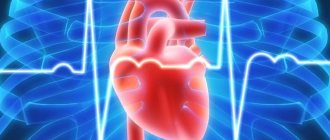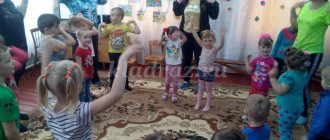Protection of life and health in preschool educational institutions
Polina Mironenko
Protection of life and health in preschool educational institutions
The educational institution strictly observes the rules and measures for the safety of the life and health of children .
The health of children in preschool educational institutions should not be endangered; this is controlled by teachers, nurses, and the head.
There are certain rules for protecting the life and health of children .
Thus, technical inspections of the premises are systematically carried out, and fire safety rules are observed.
There should be no boiling water, medicines, or matches in rooms with children.
All products consumed by children are prepared in compliance with sanitary rules.
All dangerous objects are kept out of reach of children.
For activities where scissors are used, scissors with blunt ends are provided only under the guidance and supervision of a teacher.
Also, in order to protect the health of children in preschool educational institutions, the area where children walk is put in order.
All holes in the area are filled in, and the absence of objects that could harm the child’s health .
All game equipment is in good working order.
During winter, all buildings and structures are cleared of snow, icicles are not allowed, all paths are treated from ice, as necessary, with sand.
Health protection in preschool educational institutions is a very important and responsible task.
Teachers immediately inform the medical worker about the presence of diseases.
The premises where children are located are cleaned and ventilated daily.
Group teachers must not only teach children and develop their mental abilities, but also ensure that the health of children in preschool educational institutions does not suffer, but rather strengthens and improves.
Currently, one of the priority tasks facing every preschool educational institution and teachers is to preserve the health of children in the process of education and training.
The problem of early formation of a health culture is relevant , timely and quite complex.
It is known that preschool age is decisive in the formation of the foundation of physical and mental health . After all, it is up to the age of 7 that a person goes through a huge developmental path that is not repeated throughout his subsequent life . It is during this period that intensive development of organs and the formation of functional systems of the body takes place, the basic personality traits, attitude towards oneself and others are laid.
Therefore, it is so important for us - teachers and you - parents, precisely at this stage of preschool childhood, to form in children a base of knowledge and practical skills of a healthy lifestyle , a conscious need for systematic physical education and sports.
Today, by a healthy lifestyle we understand the active activities of people aimed at maintaining and improving health .
The formation of a healthy lifestyle begins already in our kindergarten.
All life activities of a child in a preschool institution are aimed at maintaining and strengthening health .
The basis is weekly organized educational activities, partnership joint activities of the teacher and the child during the day, interaction with the families of pupils.
The goal of health work in a preschool educational institution is to create a sustainable motivation for the need to preserve one’s own health and the health of others . Therefore, it is so important to correctly design the content of the educational process in all areas of child development, to select modern programs that ensure familiarization with values, and above all, with the values of a healthy lifestyle .
Main components of a healthy lifestyle :
• Rational regime.
• Proper nutrition.
• Rational physical activity
• Hardening of the body.
• Maintaining a stable psycho-emotional state.
The regime is usually understood as a scientifically based routine of life , providing for a rational distribution of time and the sequence of various types of activities and rest.
When followed correctly and strictly, a clear rhythm of the body’s functioning is developed. And this, in turn, creates the best conditions for work and recovery, thereby promoting health . The daily routine must be observed from the first days of life . Health and proper development depend on this Therefore, our teachers ask you to adhere to the regime in kindergarten and at home.
When conducting regime processes, the preschool educational institution adheres to the following rules:
1 Complete and timely satisfaction of all organic needs of children (sleep, nutrition, walking, etc.)
.
2 Careful hygienic care, ensuring cleanliness of the body, clothes, bed.
3 Involving children in participating in regime processes as much as possible
4 Formation of cultural and hygienic skills.
5 Emotional communication during routine processes.
6 Taking into account the needs of children, the individual characteristics of each child.
A rational regime is stable and at the same time dynamic to constantly ensure the child’s adaptation to the changing conditions of the external social and biological environment. The more this mode will be based on the features of the “biorhythmic portrait”
child, the better conditions his physiological systems will be in, which will certainly affect his
health and mood .
Therefore, we take into account the individual characteristics of children, for example, a gradual rise after sleep. In childhood, the role of nutrition is especially great, when a food stereotype is formed and the typological characteristics of an adult are laid.
health largely depends on properly organized nutrition in childhood .
Basic principles of rational nutrition:
1 Ensuring balance
2 Meeting the body's needs for essential nutrients, vitamins and minerals.
3 Compliance with diet.
Rational nutrition of children is one of the main environmental factors that determine the normal development of a child. It has a direct impact on the child’s life activity , growth, and , and increases resistance to various adverse influences.
A culture of health and a culture of movement are two interconnected components in a child’s life .
Active physical activity, in addition to its positive impact on health and physical development, provides psycho-emotional comfort for the child.
The motor culture of preschool children begins with the formation of the structure of natural movements and the development of motor abilities, creating conditions for children to creatively master the standards of movement in various situations, the formation of motor imagination, and the ability to emotionally experience movements.
The main conditions for the formation of a motor culture are:
1 Raising in children a conscious attitude towards performing motor actions.
2 Development of imagination when performing motor actions.
3 Inclusion of sensory systems in the education of motor culture.
4 Creating optimal conditions for each child in the process of mastering motor experience.
Nurturing a motor culture is a mutually directed process; for its success, it is necessary to organize a purposeful system of upbringing and education in kindergarten and family.
In the process of educating a motor culture, a child acquires the knowledge necessary for conscious motor activity, masters methods of activity and experience in their implementation, and the child’s creative activity, his cognitive abilities, volitional qualities, and emotional sphere develop.
Hardening is another component of health ; it helps solve a whole range of health problems . It not only increases stability, but also the ability to develop compensatory functional capabilities of the body, increase its performance. To develop the process of hardening the body, repeated or prolonged exposure to one or another meteorological factor is necessary on the body: cold, heat, atmospheric pressure.
Thanks to the repeated actions of hardening factors, conditioned reflex connections develop more firmly. If hardening is carried out systematically and systematically, it has a positive effect on the child’s body: the activity of its systems and organs improves, resistance to various diseases increases, and, first of all, those of a cold nature, the ability is developed to withstand sharp fluctuations in various environmental factors health in particular, meteorological ones, the body's endurance increases. Special types of hardening, as a rule, are not used in kindergarten.
Experts note that the psychophysical health and emotional well-being of a child largely depends on the environment in which he lives and is raised.
Mental health is an integral element of health and is considered as a set of mental characteristics that ensure dynamic balance and the ability of a child to perform social functions.
Therefore, it is so important to create conditions that ensure the psychological health of a preschooler , providing a humane attitude towards children and an individual approach taking into account their personal characteristics, psychological comfort, and an interesting and meaningful life in kindergarten .
Conditions necessary to maintain the health of preschool children .
Protecting and promoting health healthy lifestyle habits are a primary task
For this purpose, a variety of integrated activities are organized aimed at preserving the health of children ; a complex of educational, health- improving treatment and preventive measures is implemented at different age levels.
The implementation of this direction is ensured by:
— the focus of the educational process on the physical development of preschool children and their valeological education (as a priority area in the work of a preschool institution)
;
— a set of health-improving activities during the day depending on the time of year;
— creating optimal pedagogical conditions for children to stay in preschool educational institutions;
— formation of approaches to interaction with family and development of social partnership.
Systematic preservation and development of health is carried out in several areas:
-Therapeutic and prophylactic (disease prevention, national calendar of preventive vaccinations, vitaminization, etc.).
-Ensuring the psychological safety of the child’s personality (psychologically comfortable organization of routine moments, optimal motor mode, proper distribution of physical and intellectual stress, the use of relaxation techniques in the daily routine, the use of the necessary means and methods: elements of auto-training, psycho-gymnastics, music therapy).
-Health-improving orientation of the educational process (taking into account hygienic requirements for the maximum load on preschool children in organized forms of education, creating conditions for health-improving regimes , valeologization of the educational space for children, caring for the child’s nervous system: taking into account his individual abilities and interests; provision freedom of choice, creating conditions for self-realization, focusing on the child’s zone of proximal development, etc.)
-Formation of the child’s valeological culture, the foundations of valeological consciousness (knowledge about health , the ability to save, maintain and preserve it , fostering a conscious attitude towards health and life ).





